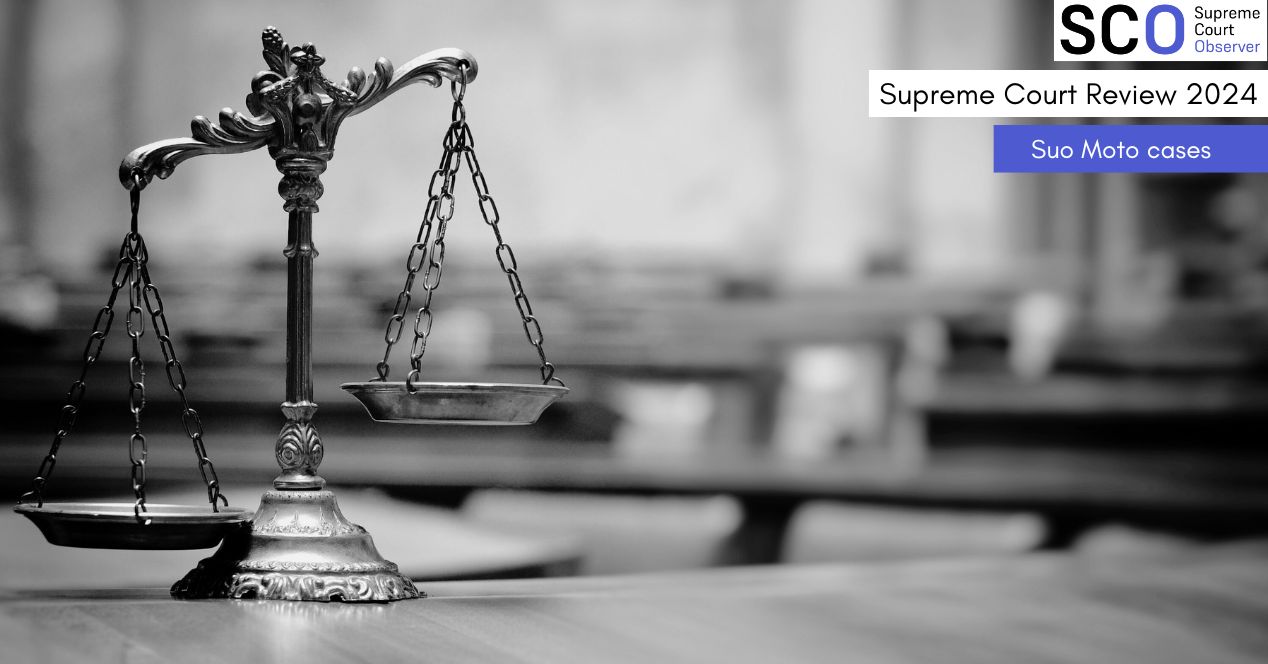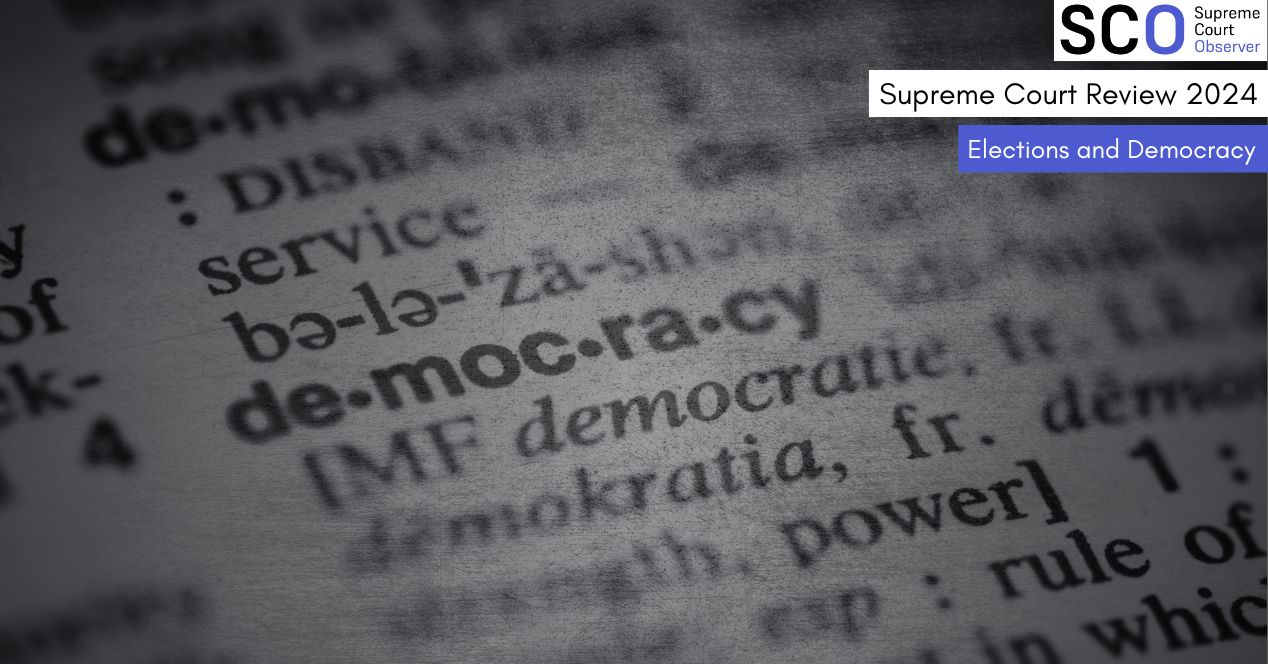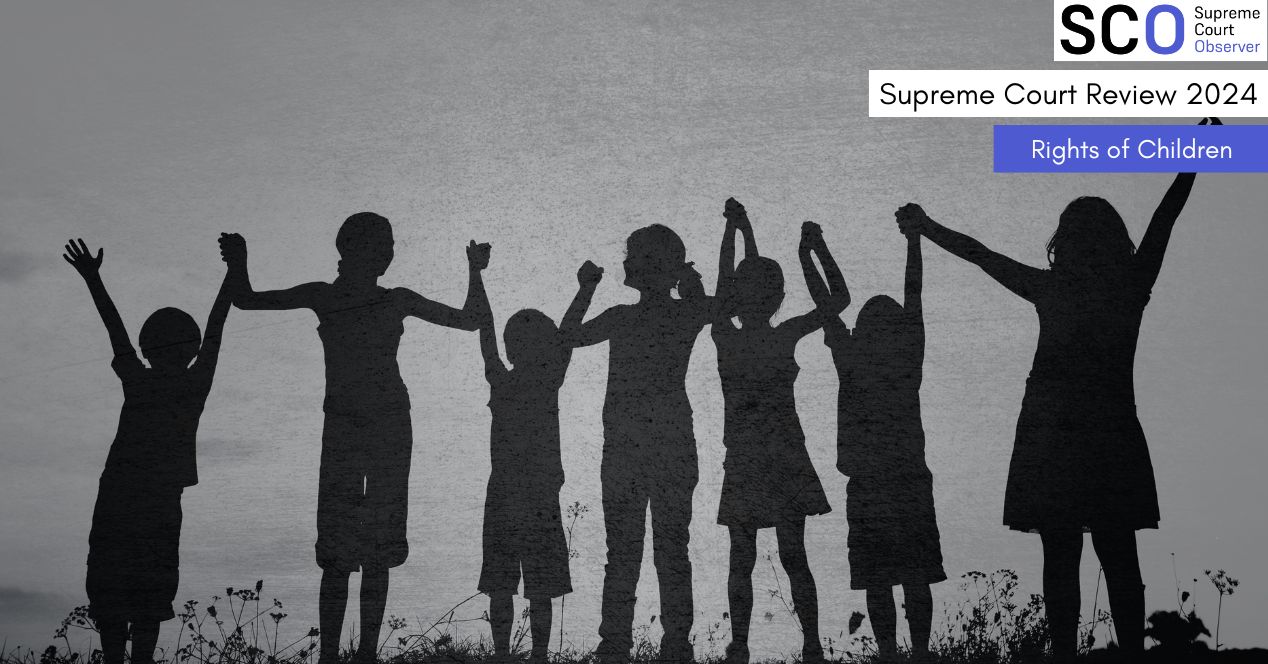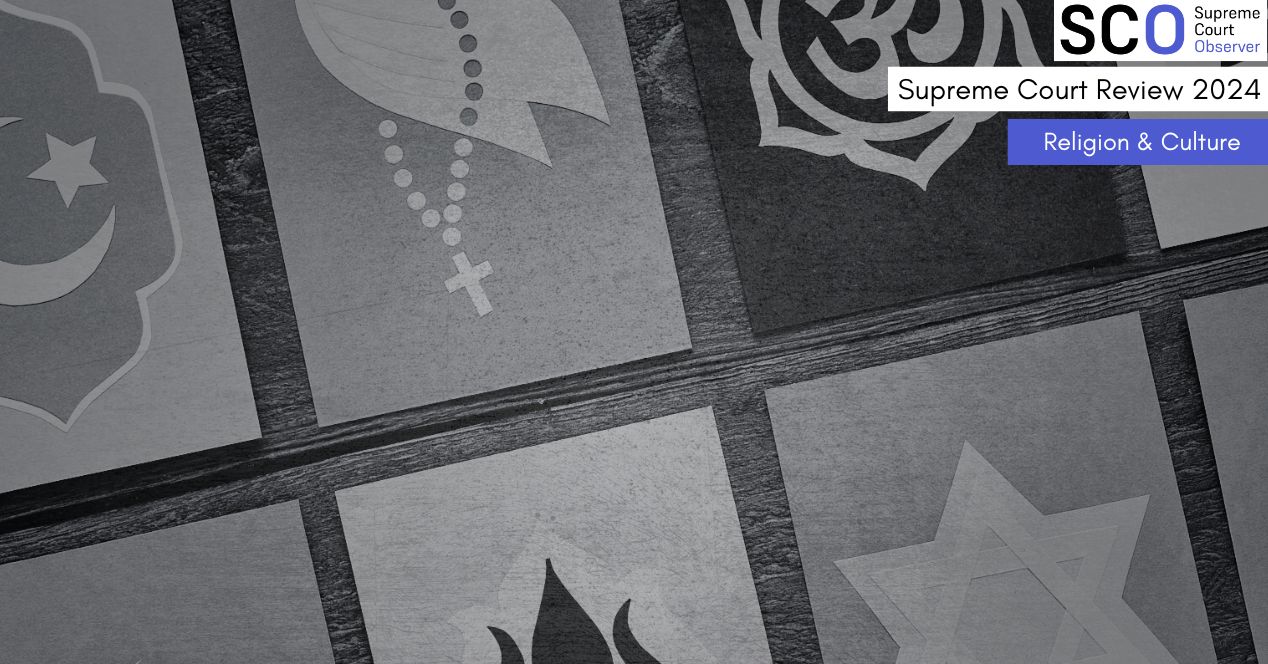Analysis
Top five judgements from 2024: an alternative list
Our editorial team picks five judgements that didn’t make it to our top 10 list, but deserve a special mention for their potential impact
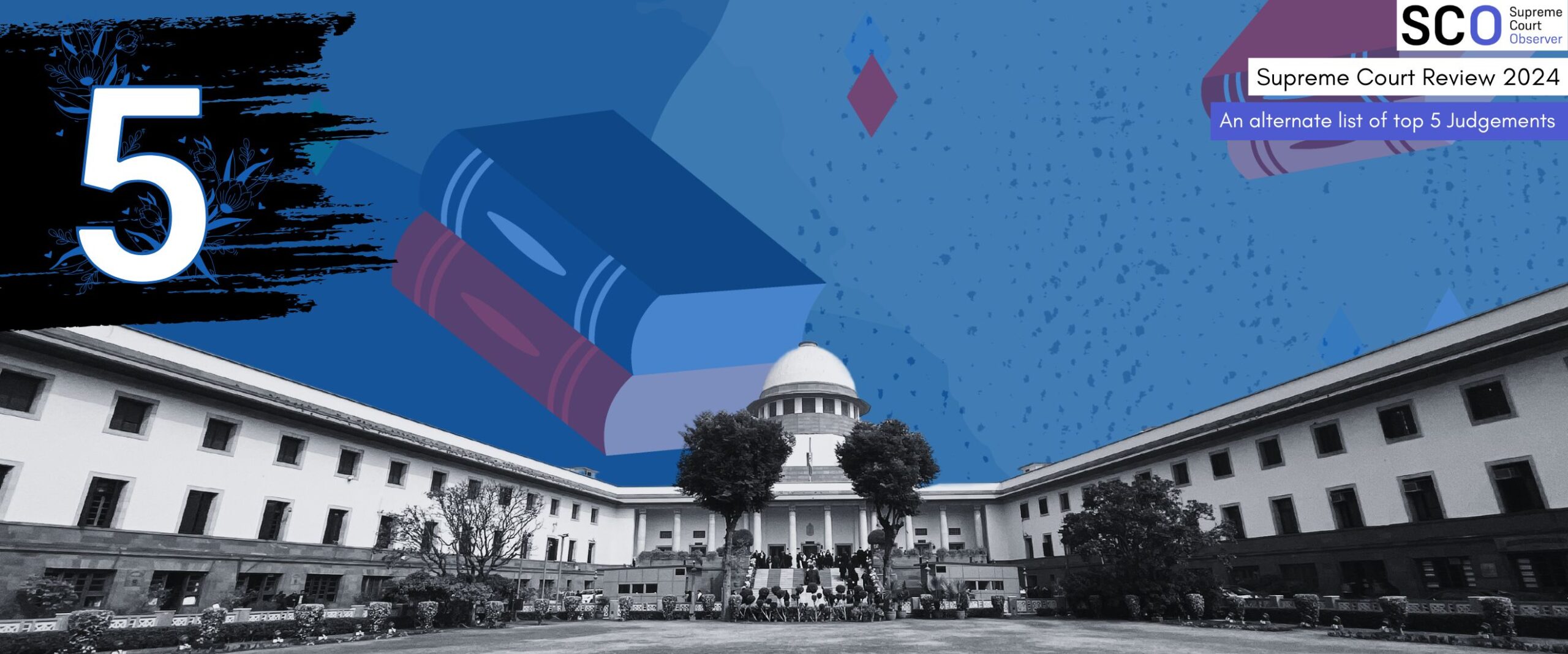
Yesterday, we published a list of our top 10 judgements from 2024. Given how wide the field is, we needed a metric of some sort. So we decided to go with ‘impact’, itself a nebulous concept, given the lack of data around how judgements are enforced in India. Some of our picks were unanimous (hello electoral bonds and sub-classification) while others were less clearcut (how to judge the impact of the AMU decision until the identity of another institution is litigated?).
This alt list was far easier to put together for our editorial team because it reflects their own preoccupations. Advay is into birds and climate doom, Gauri is all about looking at second-order effects, Manasi has a freshly minted law degree, Sushovan believes in the power of journalism and Spandana is passionate about the rights of women and children. The motif of impact runs through this list, too—these decisions may have not made it to our top 10, but they have the potential to change lives, preserve livelihoods and raise some big questions about our common future.
— Vikram Shah
Advay
My pick for this alt list was a no-brainer: the Court’s attempt to balance the benefits of solar transmission lines in combating climate change against the need to protect the Great Indian Bustard, a critically endangered bird of which only 150 or so exist in the wild. The Union was seeking a modification of a 2021 judgement, which imposed a blanket ban on overhead solar transmission lines in Rajasthan and Gujarat as they obstructed the migration path of the bustard.
This time, the Court took a more nuanced approach, noting that infrastructure development and wildlife conservation are policy matters. It set up a committee of experts to recommend measures to achieve this. My take is a bleak one that characterises policy considerations in the Anthropocene: it was development-related activity that drove the Bustard population to such precarious levels; now the species’ very survival is threatened by a man-made innovation to tackle climate change.
Gauri
Across seven days in 2023 and 2024, I reported on the five-judge Constitution Bench case on whether Light Motor Vehicle licence-holders can drive transport vehicles with unladen weight less than 7500 kg. At first, it seemed like a technical, and even boring, matter to work on. But, as the hearings went on and I delved into the case papers, it revealed itself as a matter concerning the safety of thousands of gig workers.
While dismissing arguments over safety issues, the Court found that LMV licence holders don’t need a separate licence to drive transport vehicles. Gig workers who deliver food and drive us around town could breathe a sigh of relief. The judgement also means that gig workers could contest insurance companies which denied their claims on the ground that they did not have the right licence. The LMV case is a small step to ensuring the rights of irregular workers, who are also before the Court to seek social security benefits.
Manasi
Gaurav Kumar v Union of India hit close to home. A fortnight before the judgement, I found myself grappling with a problem that several fresh law graduates were faced with—paying hefty enrolment fees for registration with the State Bar Councils (SBCs). The steep amount was justified by the authorities as necessary for “miscellaneous and administrative costs”. While my privilege insulated me from feeling like the fee was a deterrent, that would not be the case for many others.
On 30 July, the Court ruled that SBCs cannot demand fees beyond what is prescribed in Section 24(1)(f) of The Advocates Act, 1961, which is a fraction of what I had to pay. The judgement also declared that additional fees violated the right to equality under Article 14 and the right to practise law under Article 19(1)(g). The Court’s decision resonated with me as it highlighted a financial burden that disproportionately affects people entering the legal profession.
Sushovan
In Sukanya Shantha v Union of India, the Supreme Court unequivocally struck down provisions of various state prison manuals that allocated work to prisoners and segregated barracks on the basis of caste while also promoting harmful stereotypes against Denotified Tribes. For decades, our prisons have been disproportionately filled with undertrials from marginalised communities.
It was a wonderful story of collaborative activism between journalists and lawyers. The basis of the petition was a groundbreaking investigative report supported by the Pulitzer Centre. The only flaw of the judgement was a direction to prisons to delete caste columns from registers—this would have impeded research on caste representation in prisons. Happily, CJI Chandrachud agreed to recall the direction. Perhaps the most far-reaching outcome of this decision is yet to play out—from next year, the Court will be monitoring caste- and disability-based discrimination in prisons under the aegis of a suo moto case.
Spandana
One thing that stood out for me in 2024 was the Court’s suo moto interventions. Throughout the year, the Court stepped in to take up matters that shook public conscience and the fundamentals of democracy. For instance, in the aftermath of the rape and murder incident at the R.G. Kar Medical College, the Court set up a National Task Force to formulate a pan-India protocol for the safety of doctors. In other instances, the top court came down heavily on judges of High Courts for unsavoury comments during proceedings and in judgements.
Notably, in a case concerning the Protection of Children from Sexual Offences Act, the Court adopted a holistic interpretation and held that consensual sex was not an exception under the legislation. The Court called out the paternalistic observations of a Calcutta High Court judge, who had written that teenagers must “control” their sexual urges. While recognising the right to privacy for adolescents, the two-judge bench also warned judges to keep personal observations out of judgements.
This article was first featured in SCO’s Weekly newsletter. Sign up now!

